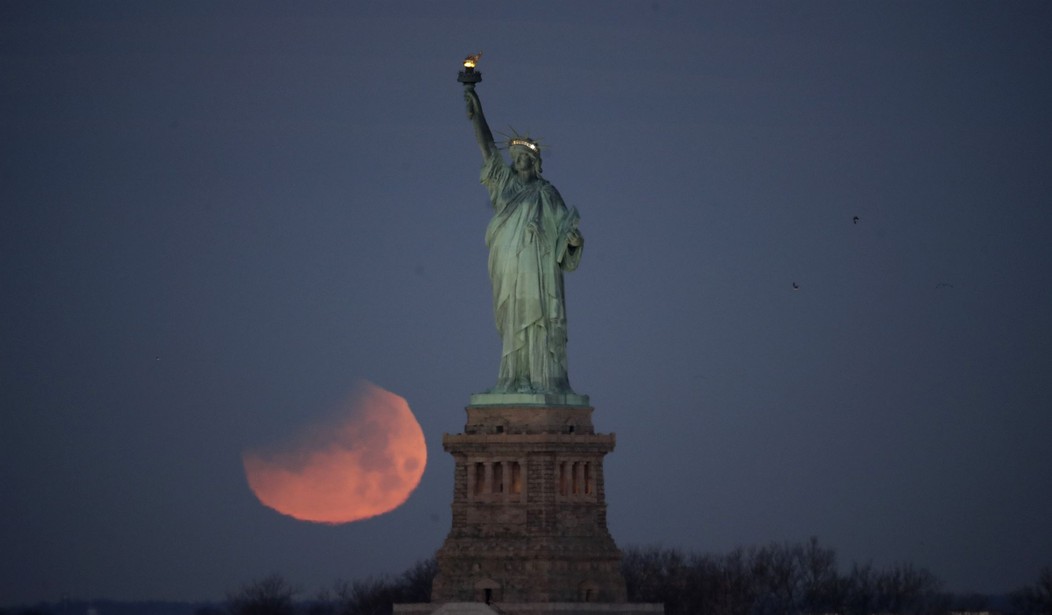Do I live in an alternate universe?
The media tell me my side is winning.
Salon claims, “We all live in Kochland, the Koch brothers’ libertarian utopia.”
Tucker Carlson says, “Our leadership class remains resolutely libertarian.”
What? Who? Not President Biden.
Biden already spent $1.9 trillion on COVID-19 “recovery” mostly unrelated to COVID. Now, he wants trillions more for an “infrastructure” bill, even though most of the spending would not go to infrastructure. He’s eager to regulate more, too.
Maybe the pundits were talking about former President Trump. He tried to deregulate — a little.
But Trump vilified trade and raised military spending, increasing our debt by trillions.
We libertarians want to reduce debt and believe trade and immigration are good for America. Above all, we believe the best government governs least.
That’s not what I hear from most Democrats and Republicans.
So, how can pundits from both left and right say libertarian ideas are winning?
“In a way, we are winning,” answers the Cato Institute’s David Boaz, author of The Libertarian Mind, in my latest video.
“Over the past couple of hundred years, we’ve moved from a world where very few people had rights and markets were not free — to a world mostly marked by religious freedom, personal freedom, freedom of speech, property rights markets, the rule of law.”
For most of history, no country had those things. As a result, says Boaz, “There was practically no economic growth, no increase in human rights and justice.”
Kings and tyrants ruled, enslaving people, stealing property, and waging wars that lasted decades.
Then, in 1700 “suddenly, limited government and property rights and markets came into the world,” Boaz points out.
The result was a sudden increase in prosperity. Americans now are told that “the poor get poorer,” but it’s not true. Americans are 30 times richer than we were 200 years ago. When America began, rich people were poorer than poor people are today.
“In Colonial America,” says Boaz, “(if) you were traveling and you wanted a place to sleep, you’d go to an inn where everyone shared a bed.”
Benjamin Franklin and John Adams shared a bed on one of their diplomatic missions. They fought whether or not the window should be open.
John Jay, America’s first chief justice of the Supreme Court, complained about “sleeping with strangers and picking up bedbugs and lice,” says Boaz. “It’s not like that anymore because of the increase in wealth.”
Today, at motels all over America, middle-class and poor people have their own beds.
When markets are free and private property is protected, innovation happens in ways that allow ordinary people to live better. Over time, that innovation multiplies. It’s why, today, most of us live better than kings once did.
Louis XIV had hundreds of servants who prepared him dinner. Today, my supermarket offers me a buffet Louis XIV couldn’t imagine. Thanks to trade and property rights and markets, each of us lives as if we had more servants than kings.
We also live longer.
“President Calvin Coolidge’s teenage son was playing tennis on the White House tennis court,” says Boaz. “He got a blister on his foot and the blister got infected, and the health care available to the son of the president of the United States was not sufficient to keep him from dying.”
Few of us notice such steady progress.
The media give us bad news. “They tell us about cancer clusters and coups in Myanmar,” says Boaz. As a result: “We forget the big picture. It’s important to remember the big picture so that we don’t lose it.”
The big picture also includes progress in fairness and decency.
“We’ve moved from ‘some people have privileges that others don’t’ to ‘human rights belong to women and Black people and gay people,'” Boaz reminds us.
“The direction of history has been in the direction of markets, personal freedom, human rights, democratic governance, and that’s what libertarians advocate.”









Join the conversation as a VIP Member